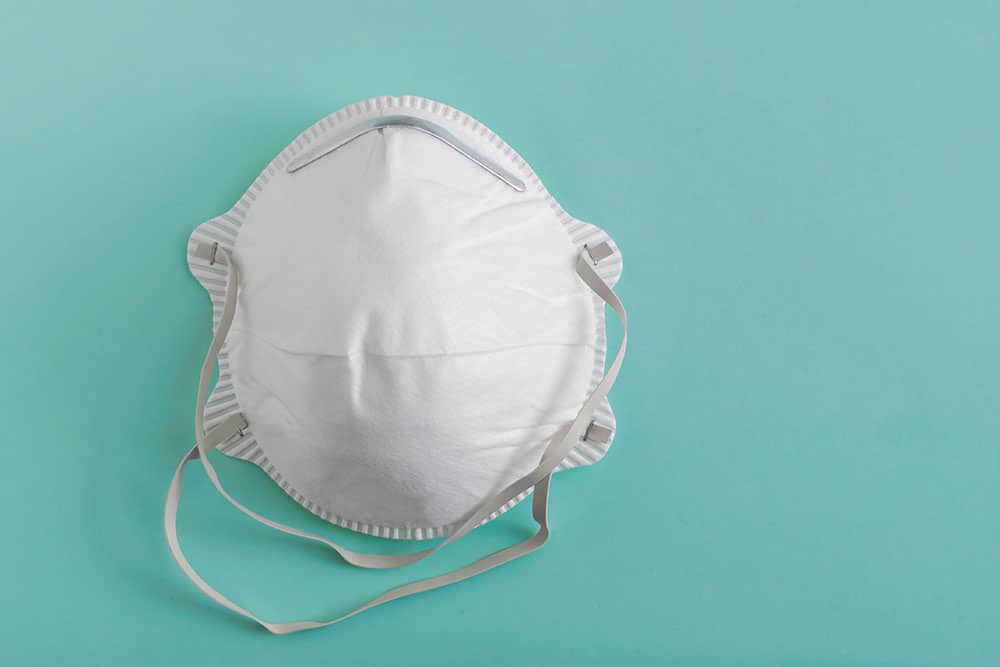The world has changed in an unprecedented way since the onset of the COVID-19 pandemic, and employers have a lot of questions for our experts at Safety.BLR.com®. Read on to see how experts answered a multi-part question from a subscriber about whether employers can mandate the use of face masks, and what should be done if an employee can’t (or won’t) use the PPE.
Q: As the COVID 19 crisis continues, can employers require and mandate the use of face masks in the workplace? What measures should be taken if the employee refuses or has an underlying medical condition that prevents their ability to wear a mask?
Answer 1: To answer your first question, you may require and mandate the use of face masks in the workplace in light of the COVID-19 crisis, but depending on the nature of your employees’ work, it may not be a recommended practice.
Under OSHA’s respiratory protection standard (29 CFR 1910.134), an employer must provide appropriate respirators, such as face masks, to employees when such equipment is necessary to protect the health of the employees. In light of COVID-19, OSHA has stated that employees in very high-risk and high-risk categories must be provided with adequate PPE, including respirators.
Very high-risk employees include healthcare, deathcare, and laboratory workers who perform aerosol-generating procedures on known or suspected COVID-19 patients or who handle specimens or body parts from such patients. High-risk employees are other healthcare and deathcare workers who are exposed to known or suspected COVID-19 patients, but not those exposed to aerosol-generating procedures.
OSHA has also advised employers to consider providing PPE like face masks to medium-risk workers if they or customers become ill. These workers are those whose jobs require frequent and/or close contact within 6 feet of those who may be infected with the virus but are not known to have contracted COVID-19.
This category of workers includes those who work with the general public in communities with ongoing community transmission and those who have frequent contact with travelers who may return from international locations with widespread COVID-19 transmission. OSHA has advised that the need for respirators by such workers would be rare.
For lower risk workers, no additional PPE is recommended. While the Centers for Disease Control (CDC) has recently recommended wearing cloth face masks in public (especially in high-risk areas), the American Society of Safety Professionals (ASSP) has stated that N95 masks should be reserved for existing work settings with particulate exposure from work functions, emergency responders, or healthcare facilities and that such masks are not effective against the spread of COVID-19 unless they are properly fitted and worn correctly along with other appropriate PPE.
Further, the WHO has said that wearing masks may create a false sense of security among the general public and has recommended more appropriate measures of defense than wearing a surgical mask or respirator.
Given these considerations, masks are likely not necessary to protect the health of many employees. Therefore, most employers do not have to provide, or allow employees to wear, a mask or respirator to protect against the spread of COVID-19.
Nevertheless, it is within the discretion of an employer to require and mandate the continuous use of face masks. If an employer requires its employees to wear face masks, the masks must be National Institute for Occupational Safety and Health (NIOSH)-approved and used in the context of a comprehensive, written respiratory protection program that includes fit-testing, training, and medical exams. The appropriate form of mask/respirator will depend on the type of employee exposure and on the transmission pattern of COVID-19.
Note: If you decide not to require the use of face masks but permit voluntary use, be aware of your obligations pursuant to 29 CFR 1910.134(c)(2).
Answer 2: To answer your second question, if an employee refuses to wear a face mask or has an underlying medical condition that prevents their ability to wear a mask, the employer cannot assign the employee work in areas that would require the employee to wear the mask.
Please note that the U.S. Equal Employment Opportunity Commission (EEOC) has released guidance that indicates that an employer may require employees to wear PPE, such as a face mask, that is designed to reduce the transmission of the coronavirus during the pandemic, but where an employee with a disability needs a related reasonable accommodation under the Americans with Disabilities Act (ADA), the employer should provide these, absent undue hardship.
This question was answered by experts at Safety.BLR.com. If you would like to take a free trial of this valuable safety resource, click here.
The post Answering Employee Questions Surrounding the Use of Face Masks appeared first on HR Daily Advisor.
